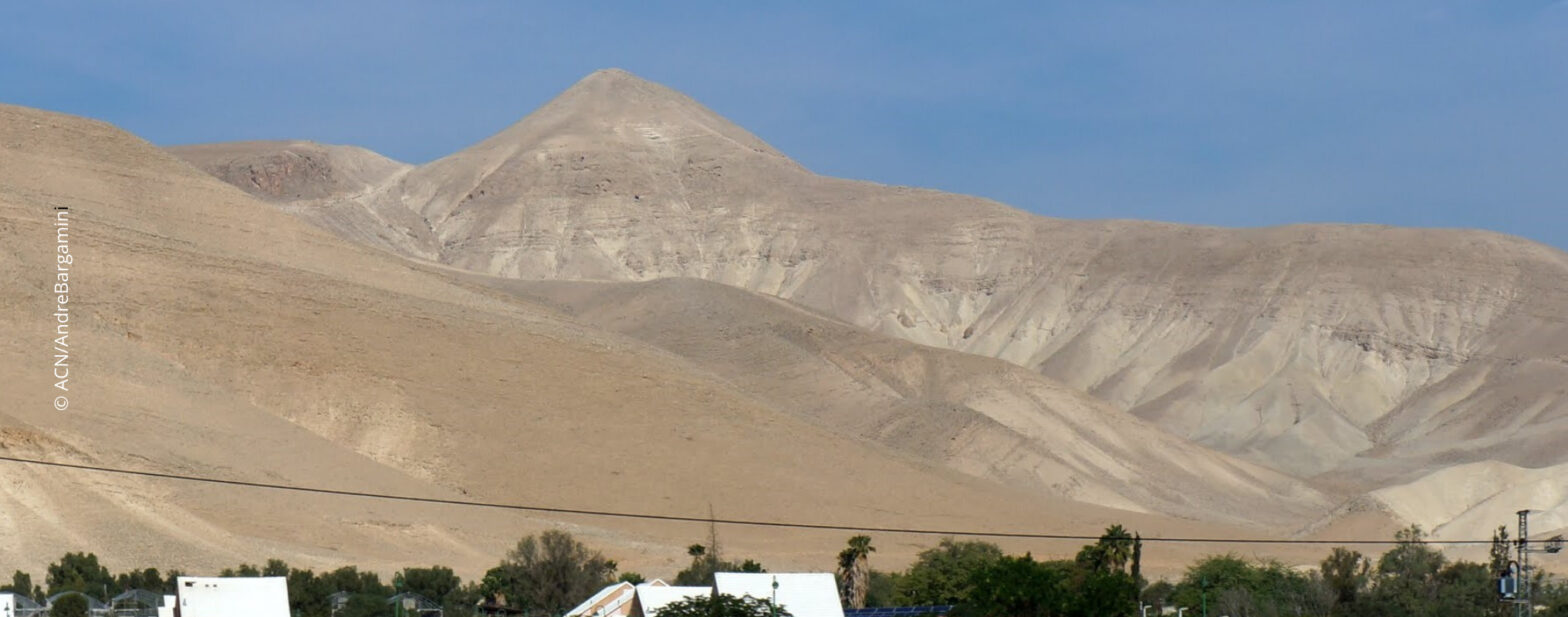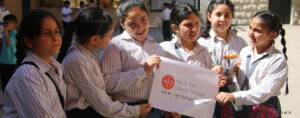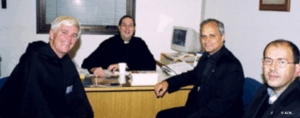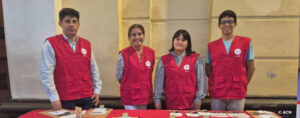Christians reflect the essence of Holy Saturday
As Christians around the world commemorate Holy Week, international charity Aid to the Church in Need (ACN) recalls the challenges facing Christians in the Holy Land, in Gaza, but also in the West Bank and Jerusalem. During his visit to ACN’s head office, Abbot Nikodemus Schnabel (photo) of Jerusalem’s Dormition Abbey describes how Christians in the region will experience the Passion of Christ and urges believers around the world to reflect on the situation of Christians in the Holy Land. (Cover photo : A view of The Valley of Jordan)
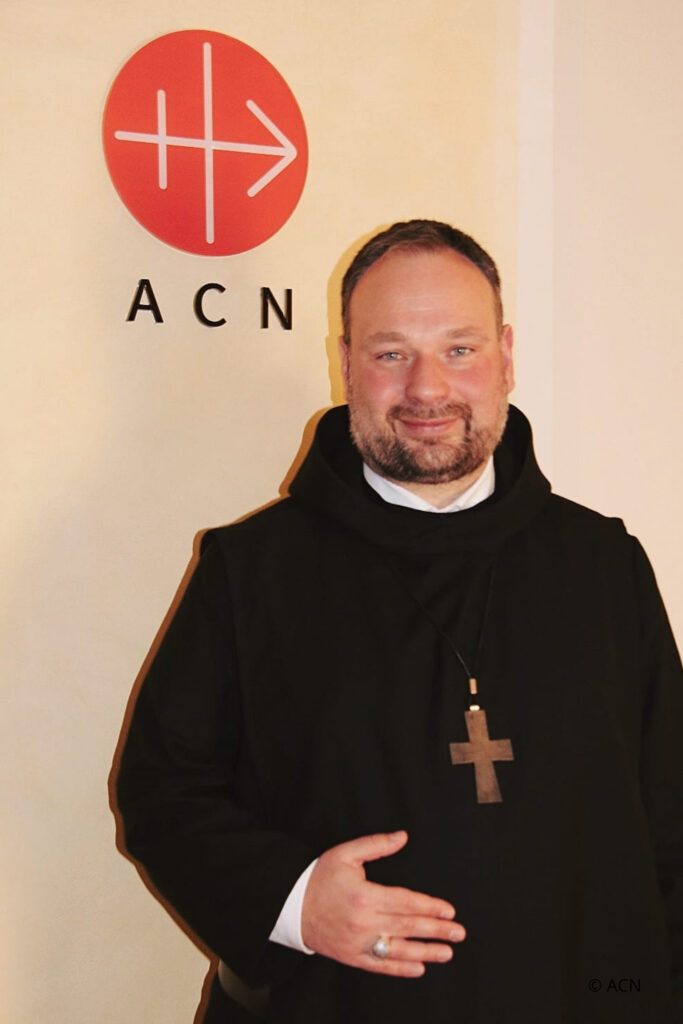
During Holy Week, Christians worldwide are reminded of the suffering and sacrifice of Jesus Christ. The story of the Holy Land, often regarded as the “Fifth Gospel,” holds immense significance for Christians. “If we are reading the Passion, if you’re in Holy Week, our thoughts are going to the Holy Land, to Jerusalem,” says Abbot Nikodemus.
He recalls that Catholics, mostly migrants and asylum seekers—whom he describes as “modern slaves”—were among those killed by the Hamas attack on October 7. “And on the other side, what’s happening now in Gaza? For us, as Christians, it is a catastrophe. As of today, we have lost 30 members who were killed. We are speaking about human beings. We are speaking about a catastrophe for both sides, because the most horrible thing people can do is kill other people, because this is the greatest sin you can commit,” he emphasizes.
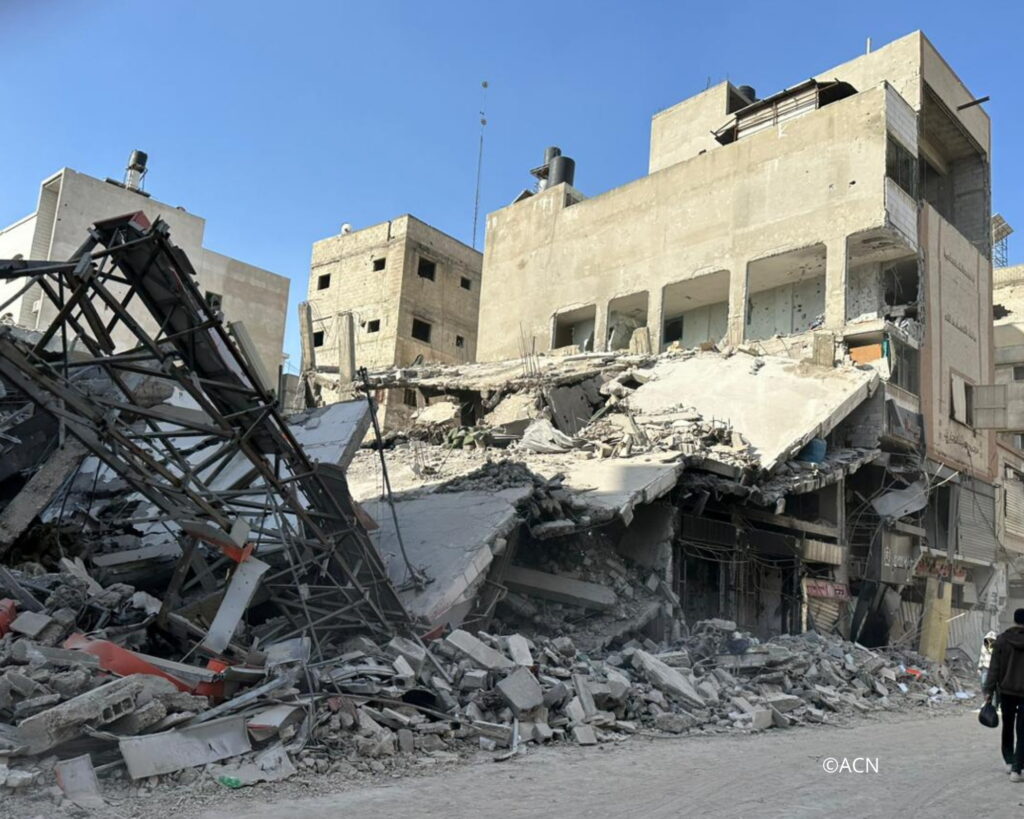
Abbot Nikodemus draws attention to the significance of Good Friday in the difficult time that Christians in this region are currently experiencing, stating: “Good Friday has a very strong meaning because you see the suffering; we see the cross. Once, we had a 24-hour prayer vigil in our church, we prayed all the Psalms, and we called the celebration ‘the Church under the cross.’ This is our place as Christians; we are the Church under the cross.”
“Holy Saturday—a time of despair and invisible suffering”
However, the abbot also speaks about the plight of Christians in the West Bank and Jerusalem, where “you cannot see the cross, because the houses are not bombed, there is no visible suffering, there are no pictures that speak to your emotional side.” There may not be visible destruction or images of suffering that attract the attention of the world, but “they are really in very difficult circumstances now. They are the most vulnerable group. Their experience reflects the essence of Holy Saturday—a time of despair and invisible suffering,” he says.
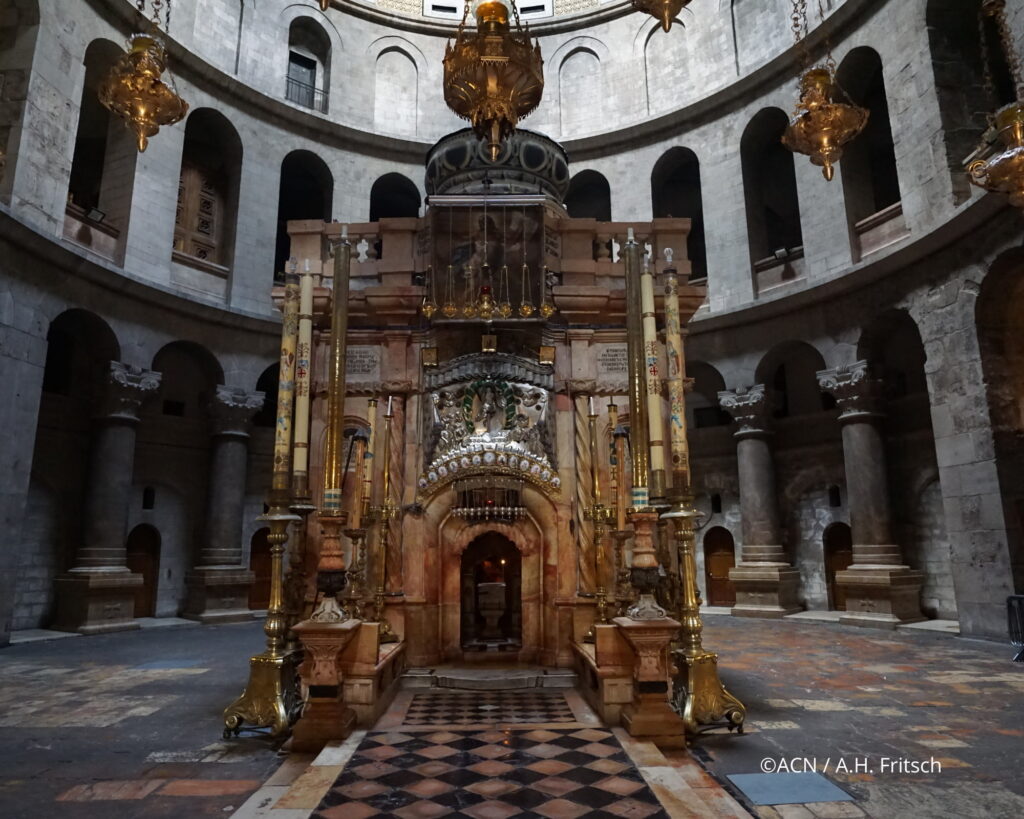
The economic impact of the war going on since October has been particularly harsh on Christians in the region, who rely heavily on pilgrim tourism for their livelihoods. “Many Christians work as bus drivers, restaurant owners, hotel staff, or tour guides,” explains Abbot Nikodemus. “The lack of pilgrims has resulted in an economic catastrophe for them.”
The danger of becoming a “Christian Disneyland”
Abbot Nikodemus warns against the danger of reducing the Holy Land to a mere tourist destination. “It’s not about a Disneyland. And this is really the fear: that the Holy Land could become like a Christian Disneyland for pilgrims. Of course, we have the churches, we have the holy places. You can have wonderful pilgrimages without being disturbed with the reality of the people. You have the stones that remember the faith of Incarnation, that Jesus really became man. But we also have the living stones, the Christians who live there. And they are really in very difficult circumstances now. They feel alone,” he explains.
Dormition Abbey, located in Jerusalem, has also felt the repercussions of the decline in pilgrim numbers. Despite the absence of tourists, the abbey has made it a priority to support its Christian staff from Bethlehem. “We feel responsible for them, even though it poses a significant financial challenge for us,” says Abbot Nikodemus.
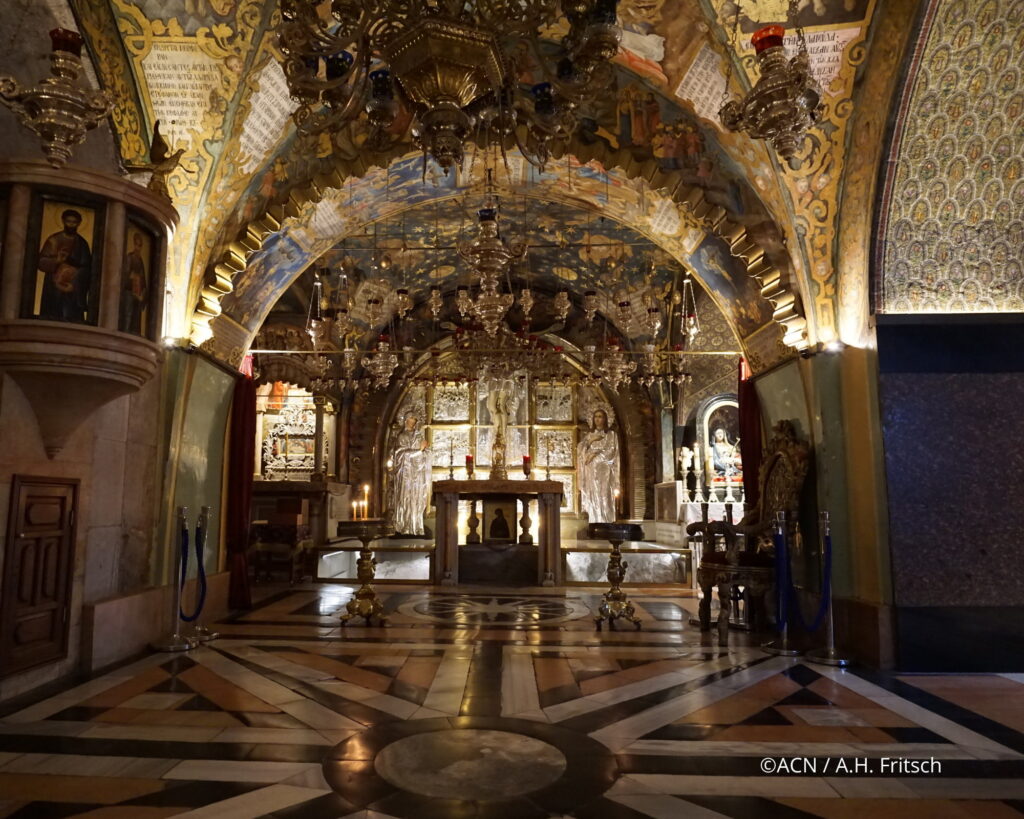
Looking ahead to Easter, Abbot Nikodemus emphasizes its importance as a test of faith. “Easter is important because it’s the key moment to know if we really trust in God and if we really believe what we celebrate. After the catastrophe, are we waiting for Easter? Do we truly believe in redemption?” he questions. “As a rational citizen of this world, I can only see war, suffering, hate, violence. But as a man of faith, I trust that my God can redeem, can save this world, can heal, and can create new life. Forgiveness. Mercy. That’s what we celebrate in Holy Week and at Easter. I hope for all Christians that there will be a new beginning and new hope, new life.”
As Christians worldwide celebrate Easter, Aid to the Church in Need (ACN) calls for prayers, solidarity, and support for our brothers and sisters in the Holy Land.

